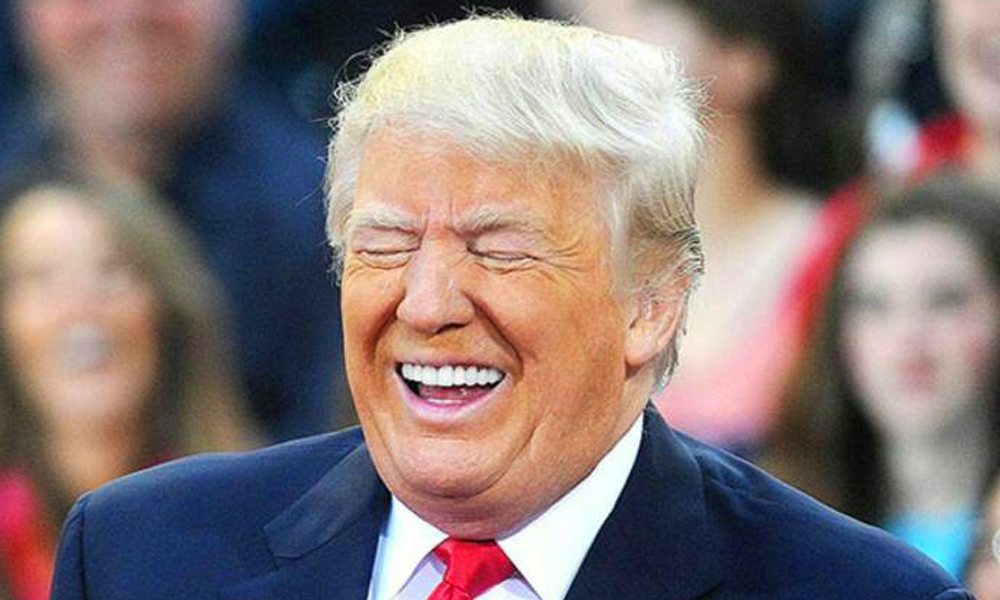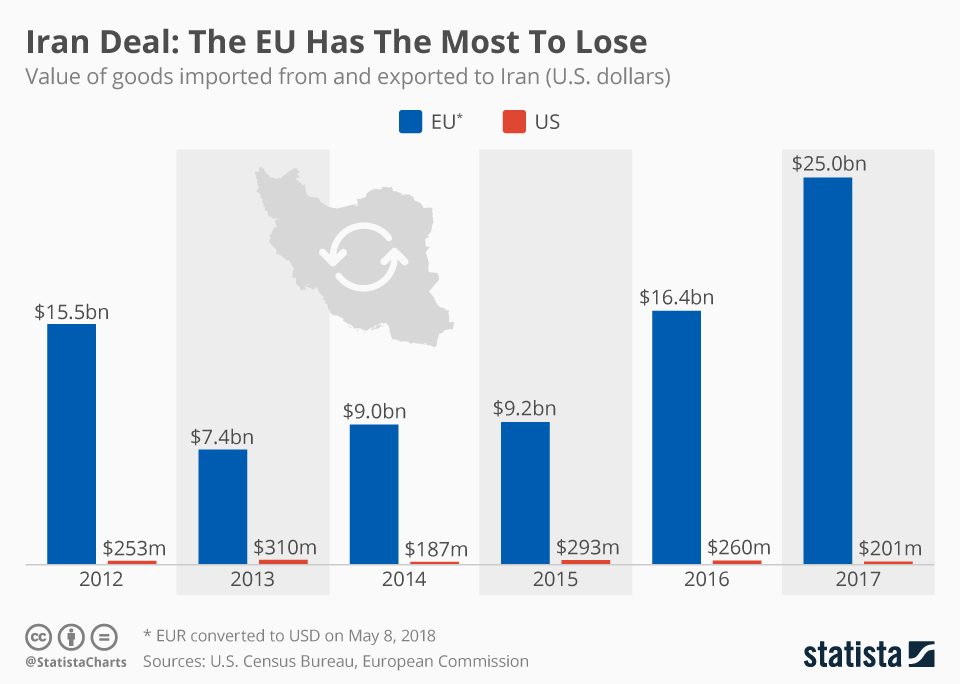Iran deal
Yet another chance for Europe, will it go to waste?

It was expected and it came. Ever since the “failed” meeting between US President Donald Trump and his French counterpart Emmanuel Macron, we knew the chances of the deal surviving the “tycoon” were slim.
Signed almost exactly three years ago, the Joint comprehensive plan of action (Jcpoa) marked an attempt to stop nuclear proliferation and, most importantly, a constructive step towards de-escalating tensions in the Middle East.
 Nevertheless, pulling out of the deal was one of Trump’s campaign promises and a further commitment to US allies in the region, Saudi Arabia and Israel. So he did it and the US will now face the consequences of abandoning a signed treaty. North Korea for example, is dancing on thin ice regarding their newly found openness towards South Korea and the rest of the world but might get cold feet in light of US accountability problem. Another risk is isolation, which is a gamble for the Administration since it’s already at odds with Russia and China. This leaves Europe, which is the real test of US influence and interests and stands, at the moment, at a difficult crossroad. The United States have little to no economic interests in Iran, therefore they can play the geopolitical game without fearing too much of an economic backlash. Europe, on the other hand, was increasingly invested in Iran’s “new path” and at the moment stands to just lose money to appeal an ally that has increasingly not cared for Europe’s interests.
Nevertheless, pulling out of the deal was one of Trump’s campaign promises and a further commitment to US allies in the region, Saudi Arabia and Israel. So he did it and the US will now face the consequences of abandoning a signed treaty. North Korea for example, is dancing on thin ice regarding their newly found openness towards South Korea and the rest of the world but might get cold feet in light of US accountability problem. Another risk is isolation, which is a gamble for the Administration since it’s already at odds with Russia and China. This leaves Europe, which is the real test of US influence and interests and stands, at the moment, at a difficult crossroad. The United States have little to no economic interests in Iran, therefore they can play the geopolitical game without fearing too much of an economic backlash. Europe, on the other hand, was increasingly invested in Iran’s “new path” and at the moment stands to just lose money to appeal an ally that has increasingly not cared for Europe’s interests.
Angela Merkel has confirmed what he said months ago at the launch of PESCO (Permanent Structured Cooperation), which is that European states cannot count on the US alone anymore to provide security to the region. We must take the matter into our own hands indeed, but it’s clear that the EU doesn’t have a fraction of the capabilities of the Americans in this field. The United States are also not being very diplomatic in this phase, with Richard Grenell, the American ambassador in Germany, unequivocally stating: “German companies doing business in Iran should wind down operations immediately”. German press and public opinion were incensed at this language, on what is seen as a meddling of a foreign power in the country’s economic and political decisions.
Following Trump decisions, all of the member states reassured Teheran of the willingness to follow through with their promises, but economically it’s clear that any corporation doing business with the US and Iran will have to make a choice, which is not always going to align with the political view of their country.
Meanwhile, the economic and monetary reforms of the EU are still blocked by conflicting interests and no solution seems to be on the horizon. Merkel’s government is weak and the Franco-German alliance has yet to prove its usefulness. Italy in the meanwhile seems to be finalizing a deal to form a government headed by The League and the Five Star Movement which is, on paper, a very eurosceptic one. With the European elections coming in 2019, the current political climate is bound to be shaken up quite a bit and yet there seems to be no concrete step forward on any of the internal issues plaguing the European Union.
Once again the world proved the absolute necessity of the EU to face global decisions and to have an impact on them and, once again, empty words and immobility are the European response. For the believers of shock therapy this is good news, but I’m afraid this is becoming more of a torture than a therapy or, maybe, that the right shock still hasn’t come. The response to the tariffs and to the sanctions on Iran, the euro reforms as well as the management of this summer migration influx will be the testing grounds to see how much the EU can walk the walk after it talked the talk. Failing this will mean seeing a very different Europe in 2019 and, possibly, a very different world.
